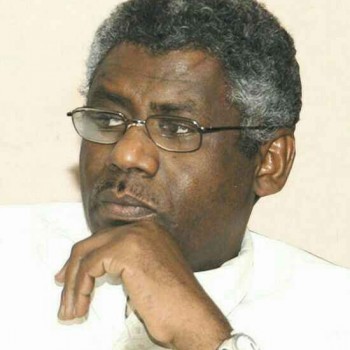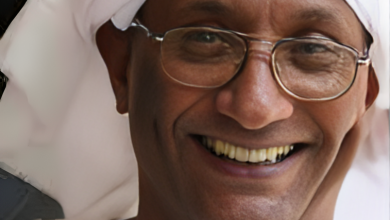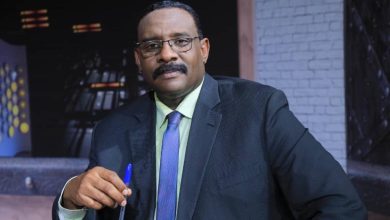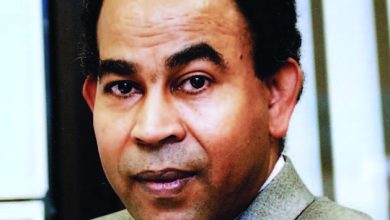Journalism…and Responsibility to Protect

By: Adil El-Baz
As I see
1
What is happening in western Sudan is still mysterious and disturbing, and the media coverage hardly meets the minimum required to furnish public opinion with what is happening there. All the journalists who were present left the region immediately after the outbreak of events, and we have no longer received anything except some distorted videos that do not reveal the facts of life there.
No one knows for sure what is happening in the cities occupied by the militia forces. Are they unpopulated?, completely emptied of their residents after the devastation caused by the brutes’ forces… What are they doing there to the people? We are suffering from the same tragedy that we are experiencing as a result of the misery of media coverage in Western Sudan. Some of them are now in the nearby villages of Gezira, despite some testimonies leaked through videos about the atrocities committed by the Rapid Support (RSF) militia there.
How can we address this shortcoming in media coverage in the absence of journalists, communication networks, and any reliable source? It is a new ordeal faced by the press, similar to the one we faced in the wars of the South and the Darfur wars, when all Sudanese newspapers began to feed on reports and news from foreign newspapers. As for Now, few foreign newspapers risked continuous coverage of the war events.
There is a video that serves as an example of what we said, which is a video in which some soldiers from the military media appeared roaming around the capital. It gave us a picture of the army’s control over the most important bridges in the capital, in addition to revealing the extent of the destruction that occurred in the areas that were filmed.
A way out must be found to uncover and document the atrocities taking place. We cannot wait until the battles end. We can, in solidarity, build a network of citizen reporters to provide the press with the facts of what is happening on the ground. The military media can also play an important role in feeding the press with information due to the proximity of many of its members from the locations of the events and their movement within the army’s escorts on the battlefields, especially now there is not a single journalist with the army’s escorts on Gezira.
Journalists who wish can be given the opportunity to visit the areas that are now under the control of the army. Something must be done about covering the war, as wars are not fought with marches alone, but with information, videos, and in ambassadorial spaces.
2
There are three pitfalls that we must avoid in the materials we publish, our writings, and our press reports. They are widening the rift between the people of the country and contributing to the expansion of the war and prolonging its duration. No matter how different our positions are, we must remain cautious.
The first is inciting hatred with writings that lead to more social tension, for example what Dr. Walid Madibo wrote in his call to eradicate a particular tribe. Such a call by an intellectual, we hoped, would be a repository of wisdom that would contribute to reducing the tension currently occurring between tribes, especially such calls the Doctor or his group cannot reap benefit from it, and it is impossible to achieve it. So what is the point of spreading and inciting hatred between tribes?
I remember some time before the famous article by the doctor, I received news that Dr. Madibo met with Izzat Al-Mahri in Manama, accompanied by pictures. It was a very important press release, so I quickly contacted Dr. Madibo to inquire about him. He asked me not to rush to publish the news because it would hinder the efforts he was making to bring the nation together. I respected his opinion and kept the news despite the temptation to publish it and enjoy journalistic scoop, but I appreciated that there was something more important than ourselves, and the scoop, but unfortunately, after less than a week, I found the same doctor who asked me to support his efforts for the sake of the nation, coming out with an article in which he distributed his accusations against the tribes and even demanded that they be erased from existence.!!. After that, I said (there is no point) and published the news because it became clear to me that it was not an effort to unite the people of the country, but rather to feed its divisions, tribally and regionally.
3
We should also avoid temptations, whether they appear in the media or what is hidden. Take, for example, what happened immediately after a recent speech by Lieutenant General Yasser Al-Atta. The newspapers swirled, awash with journalists’ writings, pushing those statements in the direction of provoking discord and conflict between the army leadership. I told a friend of mine that those statements revealed a conflict and difference in visions. What is our interest as journalists in fueling it? Is this the time? Revealing those conflicts and ways around them…? What will we benefit from the outbreak of a conflict now between the army leaders? The wise dealing with these statements, even if the news about them spreads, is to stop making them a trend by knocking on them and commenting on them…the time is a time of war and not a time of secondary conflicts. Likewise, the statements made by His Excellency Lieutenant General Kabbashi about the popular resistance, with the massive publication of those statements. It seemed like a conflict between the Islamists fighting in the ranks of the army and its leadership. I do not think that this is a fact, but the image in which the media presented those statements almost led to strife among the ranks of the fighters, and accusations were made against the Kabashi himself …what is the reason? Is this the right time and place, whether by the army leaders or by the journalists who are quick to blow the reckless air on every bomb-laden statement?
4
One of the most important pitfalls is provoking side conflicts. When we publish or express an opinion, we must ask ourselves who benefits? Publishing without guidance is a disaster. We are fighting a fierce war that may extend for years and we are within one camp supporting the army. So what is the meaning of provoking side conflicts between fighters in the same trench? For example, why provoke conflicts between the Democratic Bloc and the Coordination of National Forces, or between the mobilization and Mubarak Al-Fadil’s Umma Party, or between the Islamists and the parties that support the army? If we are unable to unite, it is better to stop absurd conflicts at a time that cannot tolerate further fragmentation. It is better to fight our enemy with a united front. Especially since this is the only thing that can achieve victory at a time when the enemy receives international and regional support and is supplied with weapons and money, and we do not have a more impregnable wall than strengthening the internal front. This is not the time for small, pointless conflicts, and we must not fuel them.
The most dangerous thing in times of war is preoccupation with trivialities and giving the enemy the opportunity to invest in secondary contradictions and portray them as if they were dangerous divisions, thereby shaking trust between fighters on one front, and this is one of the most important paths to defeat. Journalists have a responsibility to protect society and the state against the scourges of reckless statements, strife, and calls for hatred, by refraining from writing or publishing what undermines trust between officials and the people, especially at a time when tensions have multiplied and the stakes have weakened, in the words of Mansour Khaled. .., The days of mirror newspapers are over, as they are now a responsibility and a position towards the issues of the nation, its people, and the value of its threatened existence as it has never been threatened before.



